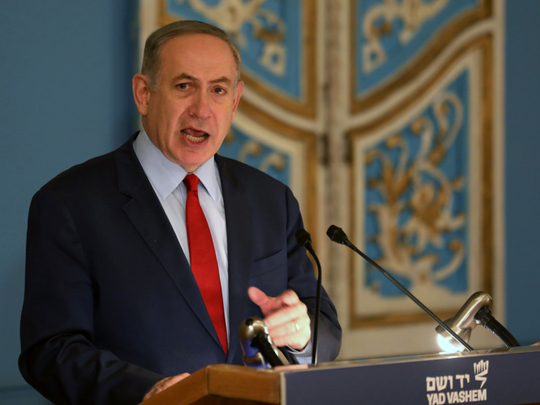
The Israeli occupation army has only investigated 20 shooting incidents since the outbreak of the Palestinian flare-up in October, 2015, but only one soldier (Sergeant Elor Azaria) was convicted. According to Gili Cohen, the military correspondent of Israeli daily Haaretz, the army listened to witnesses, collected video tapes and in some cases contacted human rights groups including B’tselem (the Israeli Information Centre for Human Rights in the Occupied Territories), but no soldier was arrested and no charges were filed, but only in the case of Azaria.
The recent and rare conviction of the soldier who shot and killed Palestinian Abdul Fattah Al Sharif as he lay wounded in a Hebron street after stabbing another soldier (on March 24, 2016) sparked a wave of anger among many Israelis, including senior politicians. Leaders of the Israeli extremist right-wing, including Prime Minister Benjamin Netanyahu, minister of Culture and Sports Miri Regev, and Education Minister and leader of the Jewish Home Party Naftali Bennett, all called for a pardon of the convicted soldier before a final sentencing is issued. Israeli President Reuven Rivlin as well as Defence Minister Avigdor Lieberman promised to consider the pardon request.
Protests by Jewish Israeli extremist rightist groups erupted and included death threats against the army’s Chief-of-Staff, Gadi Eizenkot (who had taken a different position), while social media was flooded with support for the convicted soldier. Leaflets were distributed urging rejection of continued military service as an opinion poll conducted by the Israel Today news agency showed 70 per cent of the Jewish public supporting a pardon of the soldier.
Azaria’s case, which almost led to a hysterical upheaval among Israelis, revealed disagreement with the army’s position on the issue. Former defence minister General Moshe Ya’alon slammed Netanyahu over his stance on the verdict. General Ya’alon was later replaced with Lieberman after urging army officers to speak out against the “extremist minority” who he said were working to undermine the values of the Israeli military and turn it into an army of gangs. He said Netanyahu and all those who demanded pardon to Azaria, lied to his family and to the Israeli public, exploiting the incident for political self-interests. Eizenkot said an 18-year-old man serving in the army is a soldier who should sacrifice his life to “protect all of us” and not to conduct a cold-blooded killing.
An editorial in Haaretz later noted that “the Azaria trial brought the Israeli discourse, both among the general public and among government office-bearers, to a new extreme, both with regard to the current place of law in Israeli society and also with regard to the question of what takes precedence — mob rule or the rule of law”. The editorial pointed to “a closely-fought battle on the slippery moral and ethical slope down which the Israeli society is sliding”. Azaria is not the son of all of us and he is a murderer, granting him a pardon, the newspaper went on to say, would be a step that the mind cannot accept.
On his part, “What if Azaria were a Palestinian”, asked Israeli journalist Gideon Levy. This is how the Israeli democracy looks like, he said, which once believed it could continue without being troubled while under a harsh military oppression in its backyard. He said Azaria was not the first of killers and would not be the last and good he was convicted. If he receives a suitable punishment, he added, it would prevent other acts of killing. Levy said the B’tselem camera forced the army to send him to court and evidence convicted him. He went on to say that there would be no other trials such as that of Azaria because politicians and the broad public will not allow it to happen.
From a different perspective, Yagil Levy wrote, saying that Azaria does not sit (in court) alone, for millions of defendants should also be sitting there, but they cannot bear the responsibility. He said they have been for years allowing religious authorities into the army depicting the Palestinian as one who should be killed with no specific reason. He wondered as to whether the secular soldier Azaria has not been affected by such a belief or that he didn’t hesitate to shoot.
The Israeli society was the biggest loser in this (Azaria) issue, wrote Journalist Yossi Yehoshua, saying “the Israelis received a blow to one of their most valuable assets, i.e. the army, which they view as an army of the people. He added that though once a symbol of unity, that always remained outside the disputes that tore apart the Israeli people, the army has become the rock of differences stuck in a crisis of confidence that will take long to restore”. On his part, Ron Ben Yishai predicts “far more damage saying the threat facing Israel as a state of law lies if the Knesset members attempt through legislation to change the result of the judicial proceedings. Should this happen, it will compromise the immunity of leaders in the Israeli government, soldiers and army commanders who might be subject to prosecution by the International Court of Justice on charges of war crimes”. This is what Knesset members are expected to do, but it is our duty and responsibility to take Israeli officials to court.
Professor As’ad Abdul Rahman is the chairman of the Palestinian Encyclopaedia.










